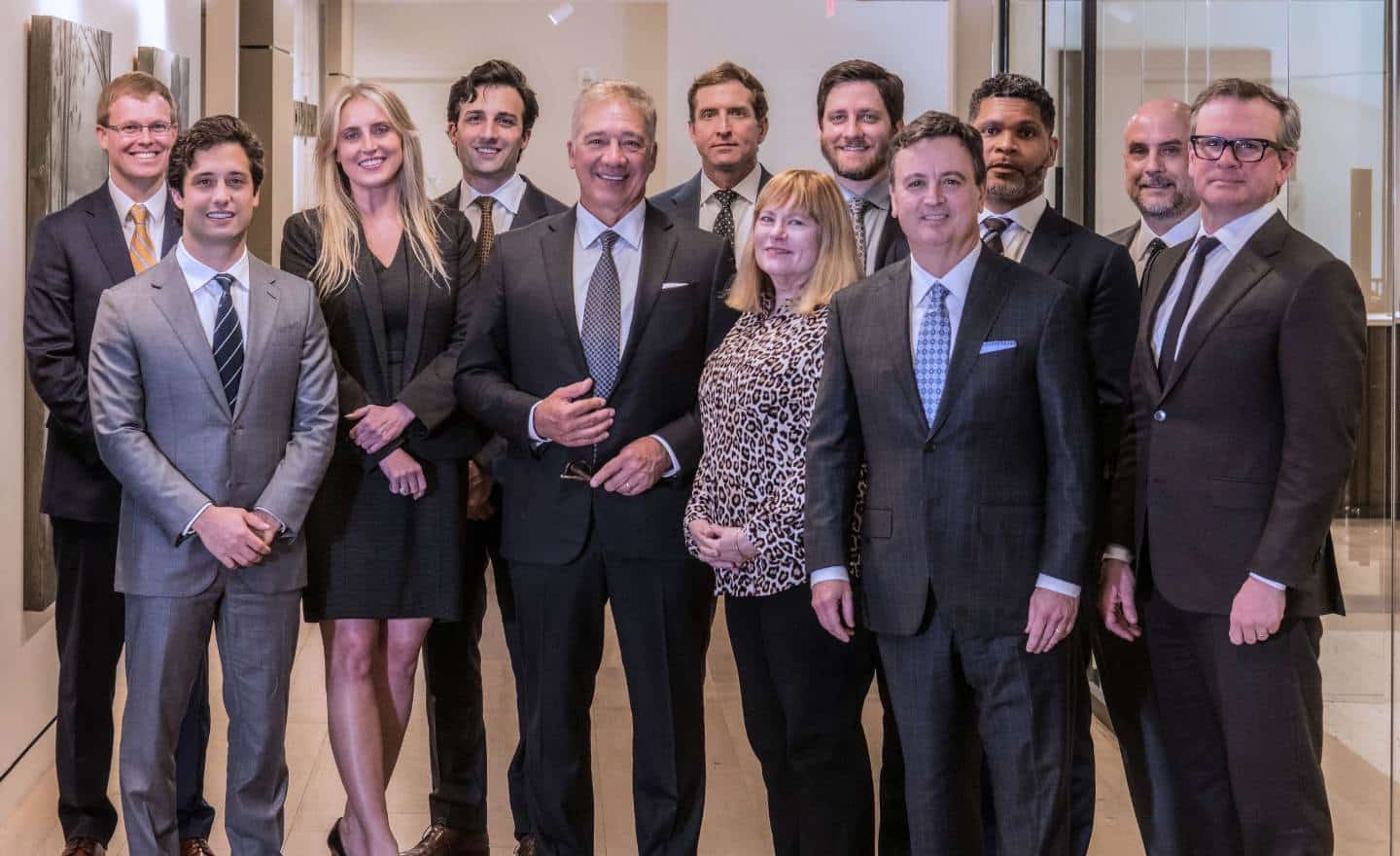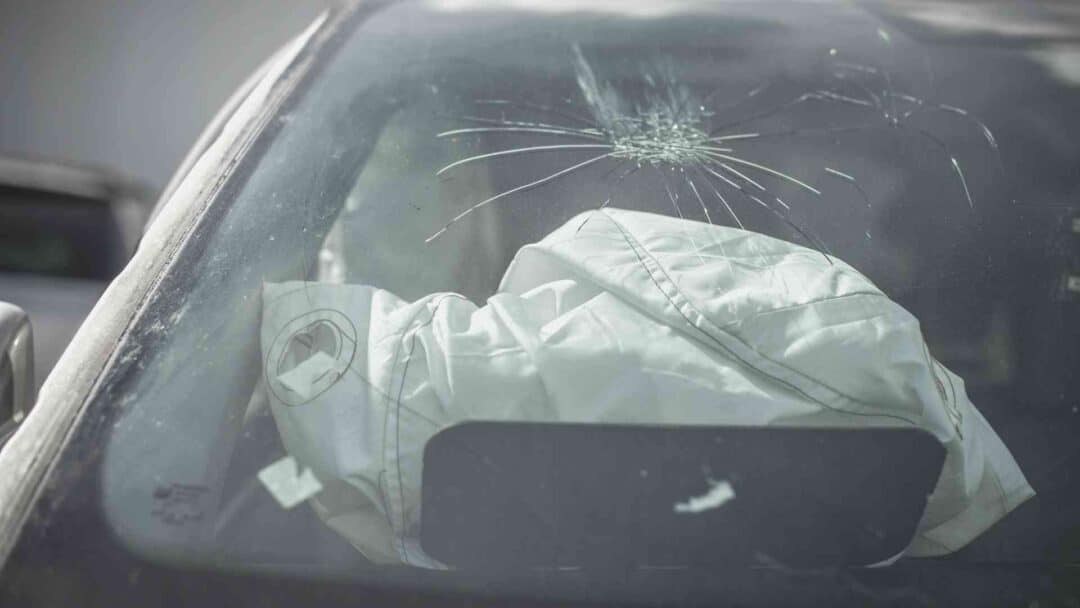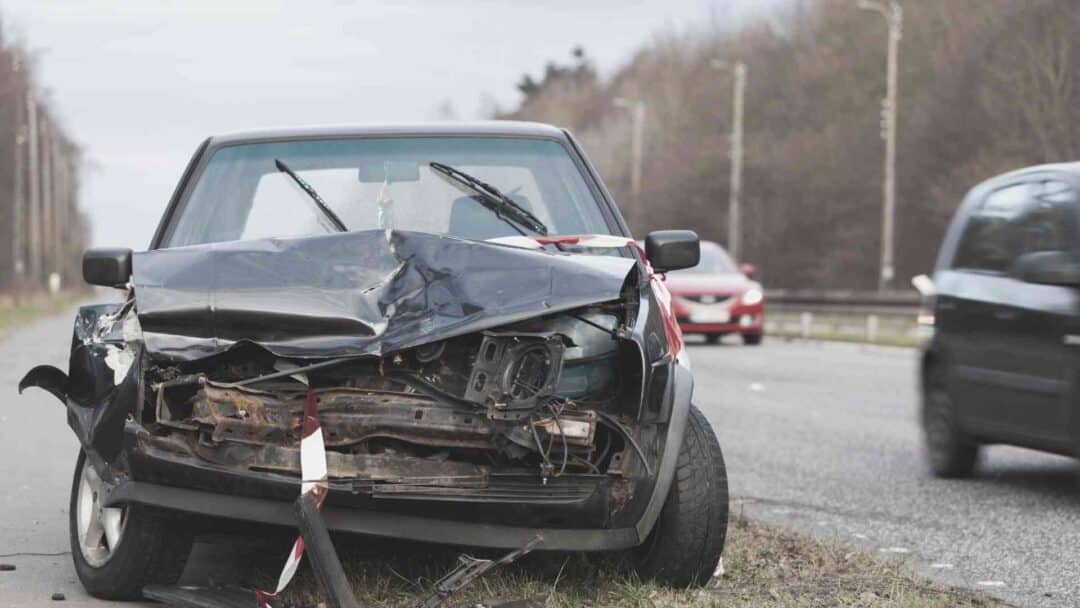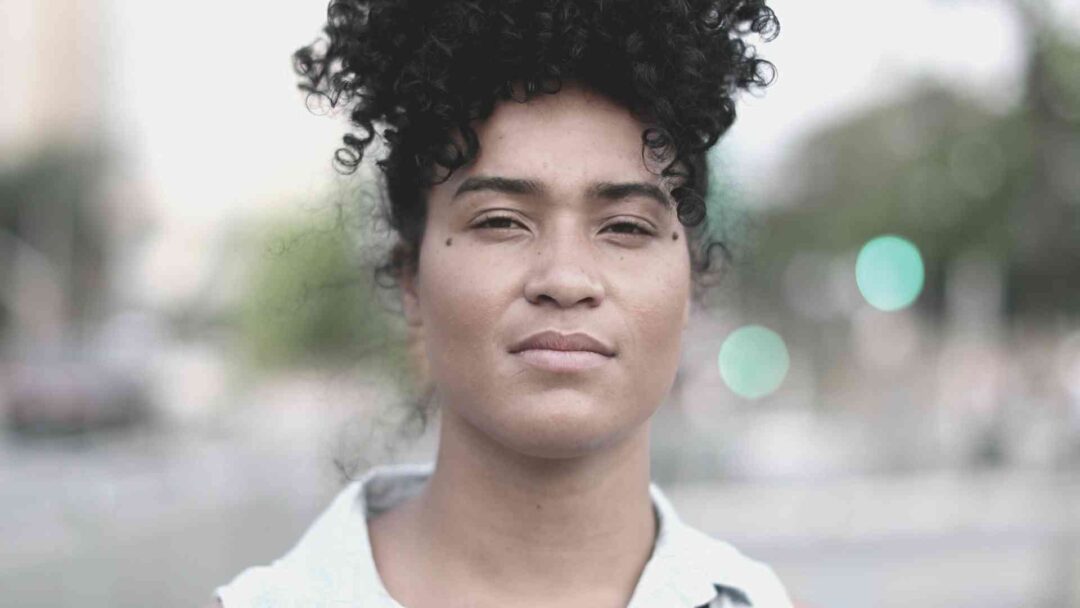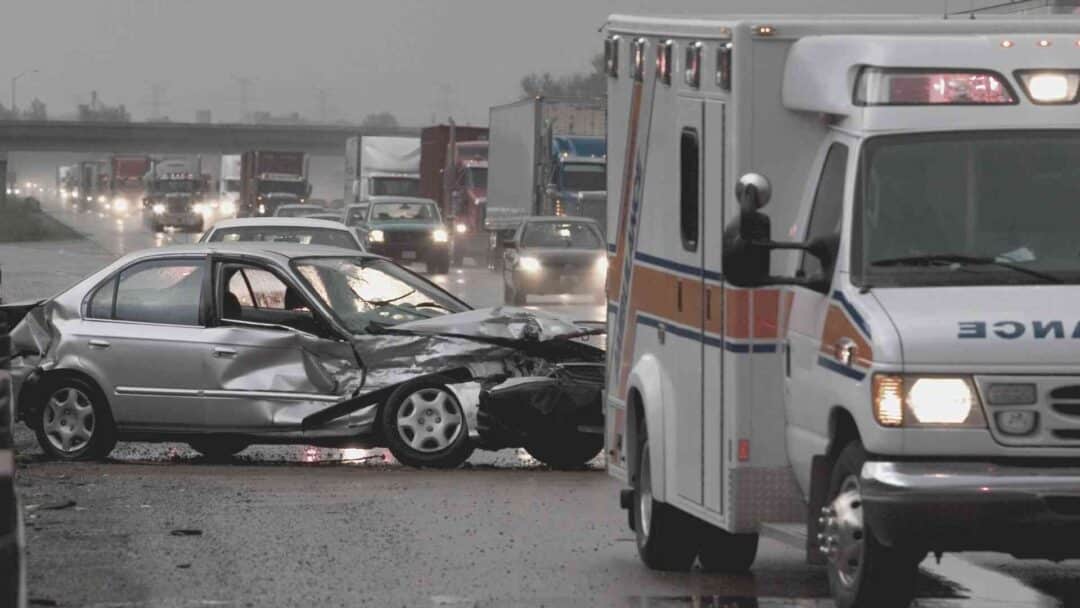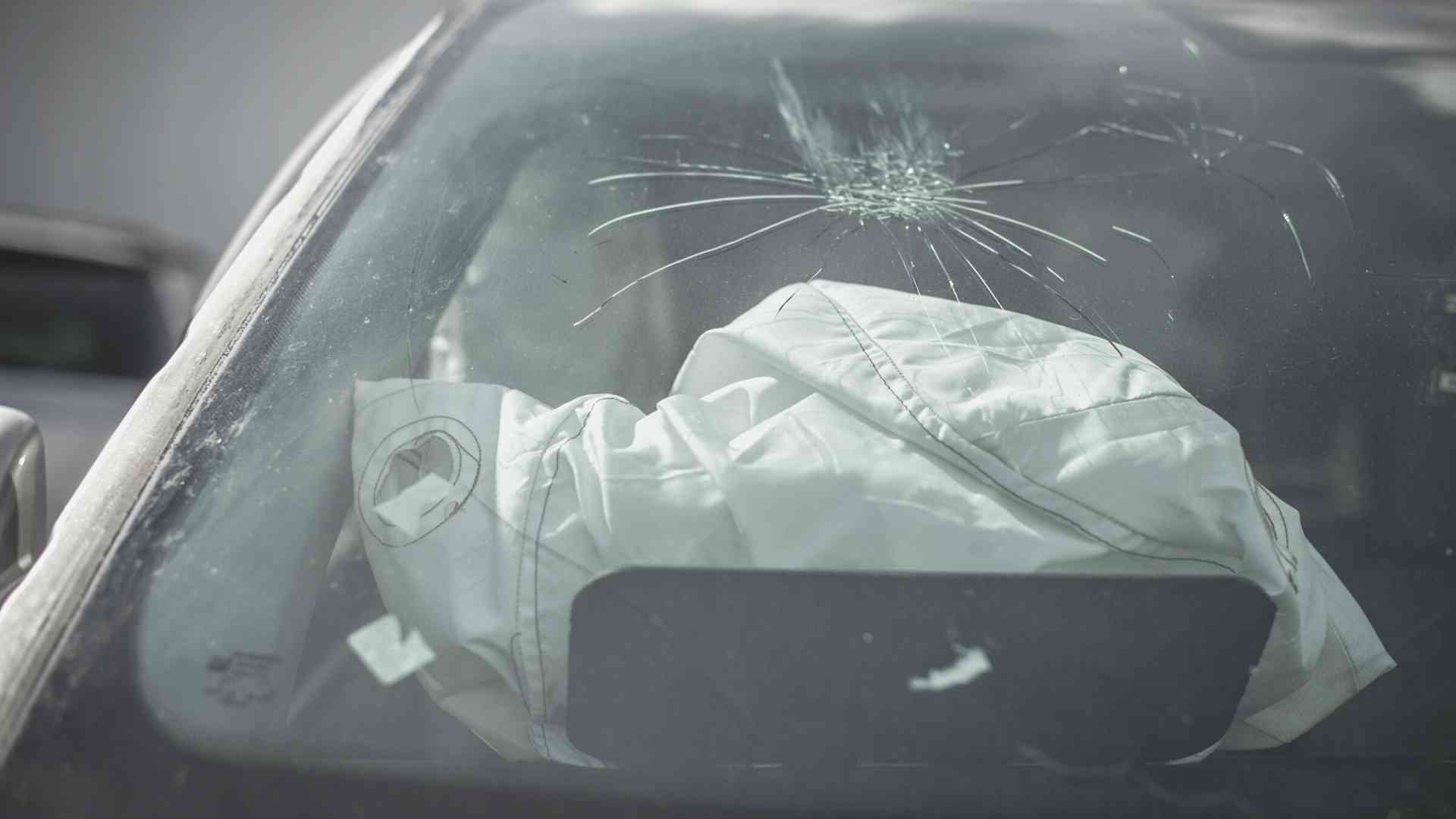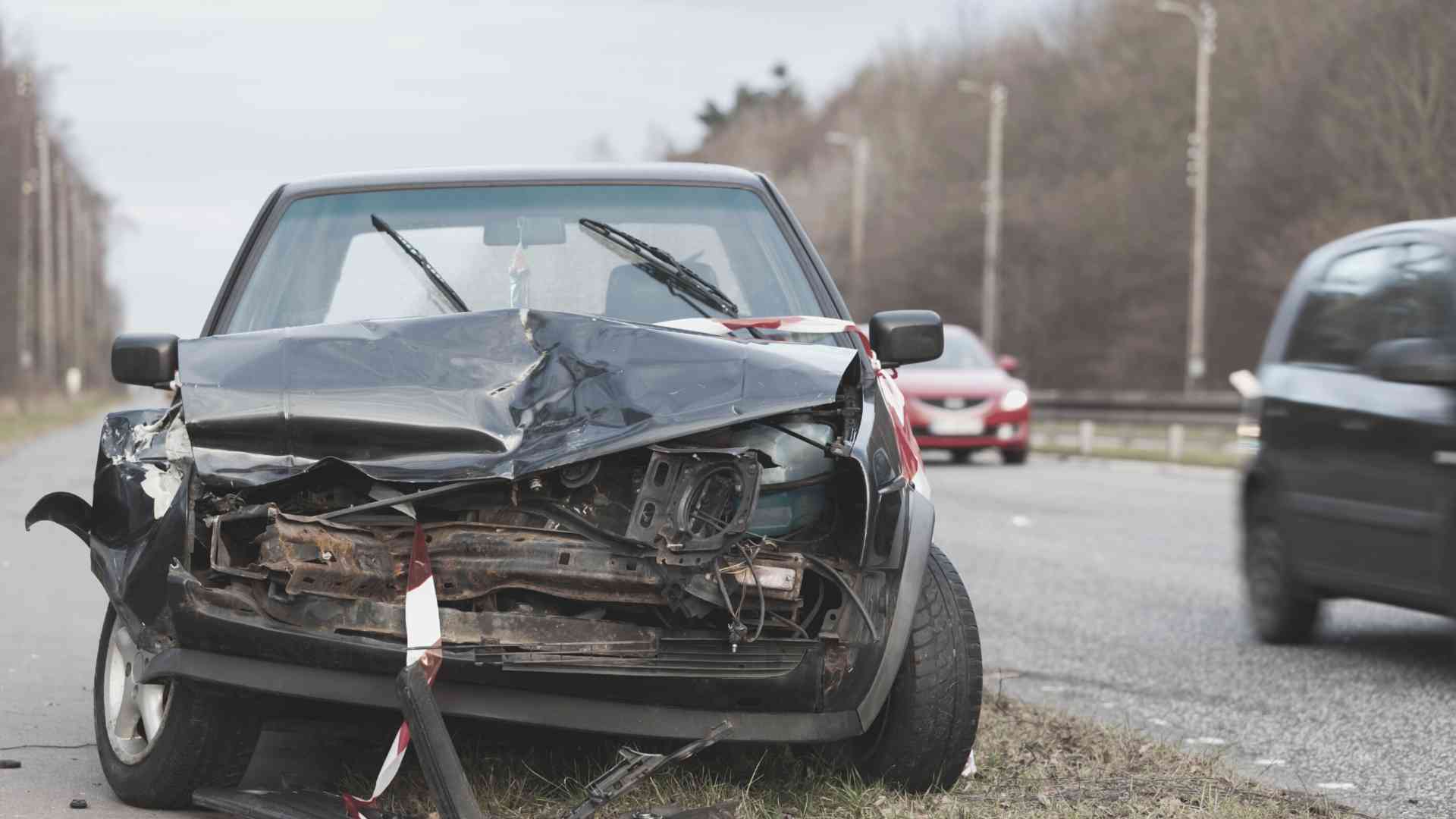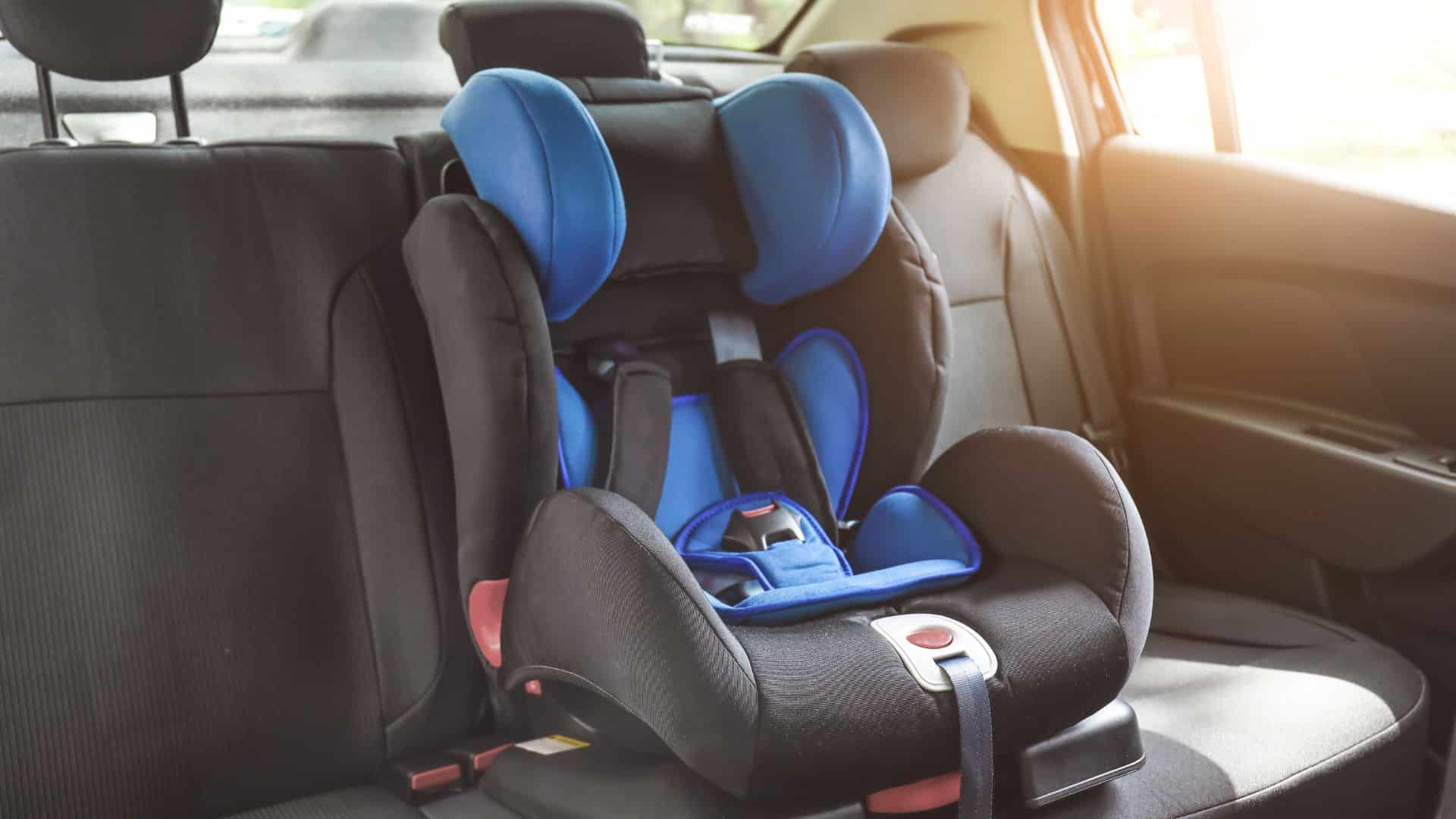Cumberland School of Law-recent Development in Tort Law-Um Litigation from the Plaintiff’s Perspective
CUMBERLAND SCHOOL OF LAW-RECENT
DEVELOPMENT IN TORT LAW-UM LITIGATION
FROM THE PLAINTIFF’S PERSPECTIVE
Marsh, Rickard & Bryan
800 Shades Creek Parkway
Suite 600D
Birmingham, AL 35209
1. What Does The Phrase “Legally Entitled To Recover” Mean?
From a purely substantive law standpoint, the most significant decision in the uninsured motorist arena in recent history was handed down in Ex part Carlton, 2003 Ala. Lexis 112 (Ala. 2003). In this case, the Court held that the phrase “legally entitled to recover” is to be construed literally so that the insured must be able to show that, as a matter of tort law, the uninsured or underinsured motorist is liable to him. Prior to this decision the Court held, in a number of cases, that all the insured had to prove was that the uninsured/underinsured motorist was at fault in causing the accident. The fact that the tortfeasor might have had a technical defense to the insured’s claim did not preclude the insured from recovering on the contract. For example, in State Farm Automobile Insurance Company v. Baldwin, 470 So.2d 1230 (Ala. 1985), the Court held that even though the Feres doctrine precluded the insured from maintaining a tort action against the government for injuries sustained when the insured was involved in a collision with a government vehicle, the insured could still recover from his own uninsured motorist carrier. Similarly, in State Farm Automobile Insurance Company v. Jeffers, 686 So. 2d 248 (Ala. 1996), the Court held that even the insured could not maintain an action against a deputy sheriff, because of substantive immunity; the insured could still recover against his own uninsured motorist carrier. This logic was extended in a controversial case, Hogan v. State Farm Automobile Insurance Company, 730 So.2d 1157 (Ala. 1998), overruled on other grounds; Williamson v. Indianapolis Life Insurance Company, 741 So. 2d 1057 (Ala. 1999), where the Court held that because the insured guest passenger could not recover on a negligence count against the host driver because of the application of the guest statute, the insured could recover from his own uninsured motorist carrier. The Court reasoned that the host was still “at fault,” even though he was insulated from tort liability. Even thought this decision was helpful to injured insureds, the author must admit that the logic of Hogan was flawed. In Ex part Carlton, supra, the Baldwin, Jeffers and Hogan decisions were overruled.
While the decision in Carlton makes sense from a substantive law standpoint, the literal interpretation may create traps for the unwary. For example, the statute of limitations on a tort claim is two years. The statute of limitations on a contract claim and, particularly, an insured motorist claim is six years. Cline v. Aetna Inc. Co., 317 F Supp. 1229 (N.D. Ala. 1970). Will the court hold that an uninsured motorist claim brought more than two years but less than six years after the accident be invalid? What if the tortfeasor died as a result of injuries received in the accident and the insured does not file a claim against the deceased’s estate within the time allowed by the probate code? What if the tortfeasor dies and the insured does not substitute the legal representative within the time allowed by the Alabama Rules or Civil Procedure? Will the uninsured motorist carrier be able to avoid liability because of these procedural problems on the basis that the insured is not “legally entitled to recover” from the uninsured tortfeasor?
These are issues that the Court will have to address in the future as I am sure that defense counsel hired by insurance companies will raise these technical defenses. See, e.g., Healey v. Medlock, 2002 Ala. Civ. App. Lexis 695 (Ala. Civ. App.2002) writ denied; Ex parte Healey, 2003 Ala. Lexis 127 (Ala. 2003)
The opinion in Ex parte Carlton is important not only for what it did hold, but for what it did not hold. The insured was injured in a motor vehicle accident while acting within the line and scope of his employment with Montgomery Landscaping. Carlton received worker’s compensation benefits from his employer. State Farm, his uninsured motorist, refused to pay benefits. The trial court awarded uninsured motorist benefits. State Farm took an appeal to the Court of Civil Appeals which held, in a 3-2 decision, that since Carlton had received worker’s compensation benefits, he could not receive uninsured motorist benefits. The majority of the court of Appeals reasoned that an employee who receives recovery for his injuries through the worker’s compensation system may not recover uninsured motorist benefits because to do so would allow for double recovery. The insured sought a writ of certiorari to the Alabama Supreme Court. While the Court affirmed the result, that is a denial of benefits, it did not accept the logic of the court of Civil Appeals, and it is the firm belief of the author that ultimately the idea that receipt of worker’s compensation benefits precludes recovery of uninsured motorist benefits will be rejected. This issue is currently before the Alabama Supreme Court in a case that has been submitted on briefs: Michael Watts v. Sentry Insurance Co., case number 1020995. I believe the Court will disavow the logic of the Court of Civil Appeals and return the law to where it should be.
The primary reason that receipt of worker’s compensation benefits should not be considered, as a substitute for uninsured motorist recovery is that the benefits recoverable under worker’s compensation are limited to medical expenses and disability payments. The Act does not allow recovery for pain and suffering, disfigurement, mental anguish, and other compensatory damages, nor does it allow recovery of punitive damages which are available under the uninsured motorist statute. See Lavendar v. State Farm Automobile Insurance Company, 828 F.2d 1517 (11 th Cir. 1985), Hill v. Campbell, 804 So. 2d 1107 (Ala. 2002) and Omni Ins. Co. v. Foreman, 802 So.2d 195 (Ala. Civ. App. 2002). Moreover, the Alabama Supreme Court previously held that contract provisions allowing a set off of worker’s compensation benefits against an uninsured motorist recovery violates the uninsured motorist statuette. State Farm Mut. Auto. Ins. Co. v. Cahoon, 287 Ala. 462, 252 So.2d 619 (1971).
2. Do I Have To Have Corroborative Evidence To Support A Phantom Vehicle Claim?
No. In Walker v. Guide One Specialty Mutual Insurance Company, 834 So. 2d 769 (Ala. 2002), the Alabama Supreme Court held that such policy requirements are not enforceable. The insured was involved in automobile accident with a “phantom driver” and filed a claim for uninsured motorist benefits. The only evidence about the accident came from the insured. The policy contained a provision that required the claim to present competent evidence other than the testimony of the insured to prove the facts of the accident involving a phantom vehicle. The trial court, relying on an Eleventh Circuit opinion interpreting Alabama law, Mariono v. Nationwide Ins. Co., 114 F.3d 168 (11 th Cir. 1997) and a Court of Civil Appeals decision in Hannon v. Scottsdale Ins. Co., 736 So. 2d 6116 (Ala. Civ. App 1999), granted summary judgment in favor of Guide One. Fortunately, the Alabama Supreme Court reversed finding the provision more restrictive than the uninsured motorist statute and therefore void and unenforceable. The Court reasoned that any other holding could lead to ludicrous results. For example, if there were three witnesses in a vehicle and all made claims, they could not recover for the wrongful act of an “phantom vehicle” because their testimony would not be considered “competent evidence.” In summary, the Court noted that Guide One’s policy ‘could be used to hide a veritable mountain of testimonial evidence that would otherwise indicate that the claimant or claimants are ‘legally entitled to recover damages’.” 834 So. 2d 769,773. Fortunately, the Court preserved a right of recovery for those injured by the proverbial “phantom” driver. Thus, an insured injured by a “hit and run” driver or a true “phantom” may still recover on the strength of their own testimony. No corroboration is necessary nor may it be required by a policy provision.
3. Does Each Insured Have To Sign A Waiver Of UM Coverage?
While the statutory law in Alabama requires an insurance company to offer uninsured motorist coverage, the insured may reject the coverage. See § 32-5-23, Code of Alabama (1975). Often an insurer will refuse to insure a particular individual, usually habitually negligent minor. The insured is then required to execute a waiver of coverage for one individual to obtain coverage for others. Sometimes one insured may purport to reject the uninsured motorist coverage for other insureds under the policy. It is important for the claimant’s attorney to obtain all of the rejection documents and study them to see if the requirements for waiver have been complied with. For example, in Nationwide Insurance Co. v. Nicholas, 2003 Ala. Civ. App. Lexis 407 (Ala. Civ. App. 2003), a husband signed a waiver of uninsured motorist coverage but the wife did not. Both the husband and the wife were named insureds under the policy. The policy also had an omnibus provision that extended coverage to “residents of the same household” under age 21. The insured son, a 19-year-old, was killed in an accident involving an uninsured motorist. Nationwide denied coverage, relying on a waiver signed by the husband. The Court of Civil Appeal held that the act of the husband. The Court of Civil Appeals held that the act of the husband did not bind the wife and that the wife could maintain an uninsured motorist claim based on the wrongful death of her insured son. This is probably the correct result in the absence of any proof of agency. It is important to know that the result would have been different if there had been a specific exclusion for the son. Our courts have previously held that if the insured is not covered for liability insurance, then he cannot recover uninsured motorist benefits under the same policy. McCullough v. Standard Fire Insurance Co. of Ala., 404 So.2d 637 (Ala. 181) and Safeway Insurance Co., v. Hambrick, 723 So.2d 93 (Ala. Civ. App. 1998). Also, a waiver, once signed, continues to be valid in the renewal years thereafter. Section 32-7-23(a), Code of Alabama(1975).
4. Yes, Arbitration May Be The Right Way To Proceed But Do Not Get Your Best Friend To Be The Arbitrator.
In most contexts, plaintiff lawyers get sick to their stomach at the suggestion of arbitration. Yet, uninsured motorist cases are one category where arbitration may be advisable. Statistics suggest that juries are fairly conservative in uninsured/underinsured motorist cases. For example, in 2002, The Alabama Jury Verdict Reporter reported 26 uninsured/underinsured motorist cases being tried. Of that number, plaintiffs “won” 20 cases. However, in the underinsured motorist context, the awards only exceeded the underlying tortfeasor’s limits 30 percent of the time. The highest verdict was $285,000.00 (in Washington County) and the lowest with $112.00 the highest verdict in Jefferson County was $97,500.00 Therefore, it may be advisable for injured plaintiffs to seek arbitration rather than resolution by trial by jury. Most of the policies provide that the insured has the option of requesting arbitration. The way things usually precede is that each side picks an arbitrator and those two agree on a third arbitrator. The matter is then tried before the three arbitrators. It has been my experience that reasonable lawyers evaluate injury cases higher than most jurors. Also, arbitrators usually want to know what the underlying limits are and whether they have been paid. Often times, the court in a jury trial will keep this evidence from the jury. However, it is important to select a non-biased arbitrator. For a real-life example of some of the alleged “shenagins” that will not be tolerated by the courts in the arbitration setting, see Waverly Homes, Inc., v. McMichael, 2003 Ala. Civ. App.Lexis 42 (Ala. Civ. App. 2003).
5. If Liability Coverage Is Denied, Don’t I Have An Uninsured Motorist Claim?
At first blush, one would think that if a liability insurer denies coverage under a policy, in a guest passenger situation, the guest passenger should be able to recover under the uninsured motorist divisions of the same policy. In other words, it does not make sense that a vehicle could be both insured an uninsured. However, the law in Alabama is clear that just because coverage is denied under a policy as to a particular driver does not mean that the uninsured motorist coverage is invoked. For example, an exclusion may preclude liability coverage for injuries among family members, the insured may breach a condition to coverage such is giving timely notice of the accident to the insurance company or fail to cooperate with a liability carrier. In each of these instances, liability coverage may not exist. However, our courts have upheld policy provisions providing that a vehicle that is insured under a policy may not also be considered an uninsured motor vehicle under that policy’s uninsured motorist coverage. See, e.g., Allstate Ins. Co., v. Hardnett, 763 So.2d 963 (Ala. 2002), Broughton v. Allstate Ins. Co., 842 So. 2d 681 (Ala. Civ. App. 2002), Ex parte O’Hare, 432 So.2d 1300 (Ala. 1983), Watts v. Preferred Risk Mut. Ins. Co., 423 So. 2d 171 (Ala. 1982), Dale v. Home Ins. Co., 479 So.2d 1290 (Ala. Civ. App. 1985). However, the insured may recover under his own policy, Hall v. State Farm Mut. Auto. Inc. Co. , 514 So.2d 853 (Ala. 1987).
6. My Injured Client Recovered Under His Own Policy, Can I Also Claim He/She Is Covered Under His/Her Parents’ Policy?
It depends. Most policies now contain language that limits the definition of an omnibus insured to those who “primarily live with” or “regularly live with” the named insured. This language has been inserted in policies because of decisions such as Davis v. State Farm Mutual Automobile Insurance Co., 583 So.2d 225 (Ala.1991) that held that the term “lives with” was ambiguous and that a child away at school could “live” with his parents and also “live” at school. However, the new language has been given its intended effect to limit coverage. In B.D.B. v. State Farm Mutual Automobile Insurance Co., 814 So.2d 877 (Ala. Civ. App. 2001), the Court held that “modify” or “primarily” clarified the ambiguity of the phrase ” live with you” so that the phrase was no longer ambiguous. Similarly, in Nationwide Insurance Co. v. Rhodes, 2003 Ala. Civ. App. Lexis 191(Ala.Civ.App.2003), the Court held that the phrase “regularly live in the household” was not ambiguous and that it was someone who usually, normally, or customarily live in the insureds’ household. Thus, a son who visited with his parents once a month, ate occasional meals there and received his mail there did not meet the regularity test to be entitled to coverage under his parents’ policy.
7. Does The Tort Of Bad Faith Apply To The Inured/Underinsured Motorist Claim?
Yes, but only in the exceptional case. An example of such a situation is found in National Insurance Company v. Sockwell, 829 So.2d 111(Ala.2002). The insured sued her carrier for bad faith in improperly evaluating, failing to investigate, and ultimately denying her underinsured motorist claim. The insurer had paid its limits prior to trial but had initially refused to pay its $40,000.00 limits, even though the evidence established liability on the part of the underinsured motorist and the injuries were substantial. The initial reason given for not paying was that the policy did not provide underinsured motorist coverage. After the insured’s lawyer educated the claims adjuster on the statutory requirement of that form of coverage, the claim was denied a second time based on an exclusion providing that “We will make no payment for any element of loss if a person is entitled to receive payment for the same element of loss under… ‘Worker’s Compensation Law’.” The insured had received worker’s compensation benefits. After suit was filed, a more senior claims adjuster reviewed the file and realized a mistake had been made and that benefits were owed.
There was evidence that the senior adjuster offered Sockwell the limits but tied the offer to a dismissal of the bad faith claim. There was evidence that the senior adjuster told Sockwell’s lawyer that if the offer was not accepted, the company would drag the matter out and appeal any adverse verdict. The jury returned a verdict for $201,000,00 in compensatory damages and $600,000.00 in punitive damages. Both verdicts were upheld by the Supreme Court after an exhaustive analysis of Alabama’s law of bad faith. Significantly, the Court found that the case was properly submitted to the jury on both the claims of “normal” and “abnormal” bad faith. Sockwell had not exhausted all of the available liability limits available for her when the claim was denied, but National did not know that until after suit was filed and the UIM claim denied. The Court noted that the claim was worth more than the combined limits of all available coverage, and National had not investigated the matter to determine if all the underlying limits had been paid. For these reasons, the bad faith case was properly submitted to the jury.
The decision is significant for additional reasons because the Court held that evidence an insurer left invalid provisions in a policy is admissible on the issue of punitive damages. Also, the Court held that the jury could determine if the adjustor’s claim of a mere mistake in interpreting the policy exclusions was true or not. This decision should be compared to decisions such as Davis v. Cotton States Mut. Ins. Co., 604 So.2d 354 (Ala. 1992) where the claim of mistake was sufficient to overcome a claim of bad faith as a matter of law.
8. Have I Committed Malpractice If I Failed To Put My Clients Carrier On Notice Of The Tortfeasor’s Offer Of Policy Limits?
Probably, but the situation may be salvageable. The Alabama Supreme Court set forth the procedure that the insured’s lawyer is suppose to follow when the tortfeasor’s liability carrier has made a policy limits offer in Lambert v. State Farm Mutual Automobile Insurance Co., 576 So. 2d 160 (Ala. 1991). The underinsured motorist carrier has the option of advancing the amount tendered by the liability carrier or consenting to the settlement and allowing the tortfeasor to be released. The stated purpose of this procedure is to allow the underinsured motorist carrier the opportunity to protect its subrogation rights. Thus, if the insured does not afford the underinsured motorist carrier that opportunity, then the consent to settle clauses are given effect and the underinsured motorist claim is lost. Overstreet v. Safeway Insurance Co., 740 So.2d 1053 (Ala.1999). However, there is support for the proposition that the failure to follow the approved procedure must prejudice the underinsured motorist carrier before the failure is fatal to the insured’s claim. Thompson v. American States Ins. Co., 687 F. Supp.559 (M.D.Ala. 1988). If the insured motorist is insolvent, then arguably the underinsured motorist carrier is not to be prejudiced. The author also believes that one can argue that if the insured has not been “made whole” by the settlement, then no subrogation right ever came into existence. This argument can only be maintained if the subrogation clause in the policy does not give the underinsured motorist carrier a right of first recovery. Ex part State Farm Fire & Cas. Co., 764 So.2d 445 (Ala. 2000). Ex parte Cassidy, 772 So.2d 445 (Ala. 2000) Some insurers have amended their subrogation clauses to include the necessary language. For example, Progressive recently added the following clause to their automobile policies in Alabama:
“Our rights of recovery and reimbursement are primary to any other rights of recovery and reimbursement, even if the person to whom we made payment has not been fully compensated for all damages.”
Presumably, the language will be sufficient to give priority to the UM carrier’s right of subrogation.

